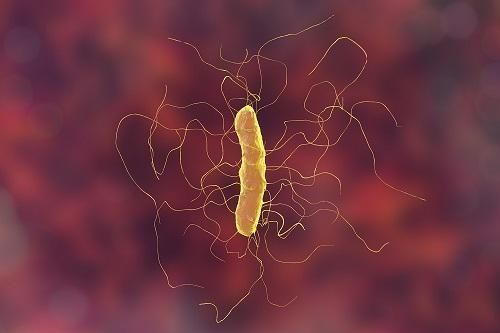Article
New Adsorbent Protects Against C Diff for Patients with Hematologic Malignancies
Author(s):
In results from a phase 2 trial show 7.5gm of DAV132 administered three times daily demonstrated protection against antibiotic-induced disruption of intestinal microbiota.

An original version of this article was published by sister publication Contagion.
A new orally administered adsorbent could prevent antibiotic disruption of intestinal flora against clostridium difficile (C diff) in patients with hematologic malignancies, according to new research.
An investigational formulation of an adsorbent to protect against antibiotic disruption of intestinal microbiota and colonization of C diff will be evaluated in a phase 3 clinical trial in patients with hematologic malignancies who require antibiotics for severe infections while receiving intensive chemotherapy.
Authorizations from 2 European regulatory agencies, the French National Agency for Medicines and Health Products Safety (ANSM) and the Hungarian National Institute of Pharmacy and Nutrition (OGYÉI), were received by the French biopharmaceutical company, Da Volterra, to begin recruitment for a phase 3 trial of the efficacy of DAV132 in reducing occurrence of C diff in a population described in the company's press release as "cancer patients for whom antibiotic use is both life-saving and life-threatening."
DAV132, characterized by the manufacturer as a "first-in-class microbiota protector," is an orally administered formulation that releases 5gm of activated charcoal from a 7.5 gm dosage into, or after passage through the ileum.
In results from a phase 2 trial described by the manufacturer, 7.5gm of DAV132 administered 3 times daily to elderly patients receiving oral or intravenous fluoroquinolone antibiotics demonstrated protection against antibiotic-induced disruption of intestinal microbiota.
According to the manufacturer's summary of the trial results, the adsorbent product significantly reduced free fecal concentrations of fluoroquinolones without affecting their plasma levels, and therefore without affecting their efficacy in treating the patients' infections.
Testing conducted at Leeds Teaching Hospitals and University of Leeds, Leeds, United Kingdom, reportedly determined that the feces obtained from the patients receiving DAV132 and fluoroquinolones were not be permissive for the ex-vivo growth of C diff, in contrast to the relative proliferation of C diff after inoculation in feces of patients receiving the antibiotics without DAV132.
There was no significant difference in adverse events between groups.
The delayed release of the activated charcoal ingredient was also found in a phase 1 study to avoid the potential interaction with concurrently administered drugs. That study was conducted with healthy volunteers receiving a 7.5gm dose of DAV132 concurrently with either 5mg of the anticoagulant warfarin, or 1mg of the antiepileptic clonazepam.
The manufacturer reported that that DAV132 had not impacted the pharmacokinetics of either drug.
"We have demonstrated once again that the adsorbent within DAV132 was not delivered before the late ileum," stated Annie Ducher, MD, then Chief Medical Officer, , Da Volterra, in their press release. "This is of tremendous importance as it means that DAV132 can be safely administered with narrow therapeutic index drugs without any risk of interference with their absorption in the small intestine."
The phase 3 trial of DAV132 in patients with hematologic malignancies who require antibiotics will be conducted in collaboration with the European-based COMBACTE-NET consortium of clinics and hospitals ready to conduct clinical trials and clinical drug development testing.
Fabien Vitry, MD, current Chief Medical Officer, Da Volterra, indicated that commencement of the phase 3 trial marked a potentially important change in the treatment of hemato-oncology patients who develop serious infections and are at heightened risk for C diff opportunistic infection from antibiotic treatments.
"Now, for the first time, we will be able to protect the microbiome of these patients in spite of their massive antibiotic use," Vitry predicted.





